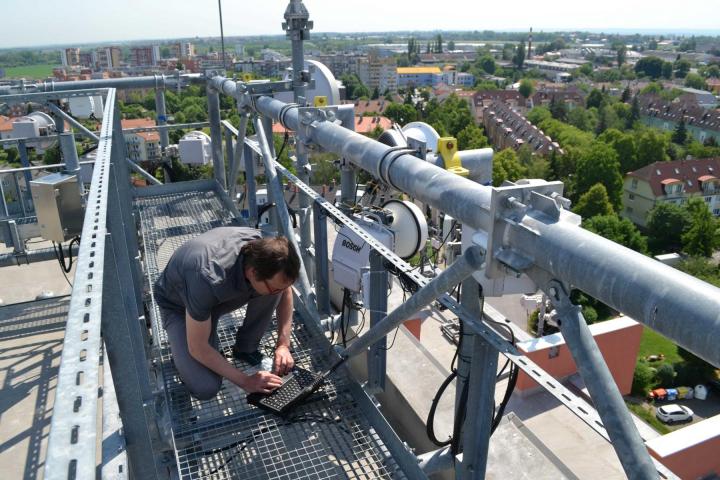The meeting in Prague, which is unique in its breadth of approach to the issue of unconventional precipitation measurement, is attended by scientists from universities and research institutes, experts from European meteorological institutes, representatives of mobile operators, employees of consulting companies in the field of meteorology, urban drainage and consultants in the use of IoT and smart cities technology.
"Meteorologists, hydrologists, radio engineers, statisticians and IT experts specialising in signal processing and machine learning from twenty countries will attend. In addition to representatives from the Czech Republic, there will be experts from the UK, France, Austria, Norway, Israel, the Netherlands and other countries. The event is unique in that it is attended by both scientists researching data collection technologies and the owners of the data, such as mobile operators and developers of home weather stations. At the same time, participants will include both data users, such as representatives of hydrometeorological institutes interested in improving their forecasts of rainfall and flood events, and consulting firms looking for new opportunities in the field of hydrometeorology," explains Ing. Vojtěch Bareš, Ph.D., from the Faculty of Civil Engineering, Department of Hydraulics and Hydrology, who has long been involved in the field of unconventional rainfall monitoring and leads the OPENSENSE project.
The aim of the three-day COST Action OpenSense (The European Cooperation in Science and Technology) workshop is to find strategies to make unconventional data as accessible and inclusive as possible in the network of conventional measurements, with an emphasis on real-time acquisition and processing, or with a delay of a few minutes. For example, Czech scientists from the Faculty of Civil Engineering, Department of Hydraulics and Hydrology, will talk about their specific experience - research on the use of mobile operator network data for sewage and wastewater treatment plant management.
"During the meeting, we will address how to improve and make available observations of rainfall using non-conventional sensors and how to integrate these observations into existing observing systems," explains Ing. Martin Fencl, Ph.D. from the Faculty of Civil Engineering, "With climate change, we expect an increase in the amount of extreme precipitation and its destructiveness, and therefore an increase in destructive floods. Even in developed countries, the density of existing sensors is not sufficient to correctly measure more extreme precipitation events, while in poorer countries the quality of measurement is significantly worse and the impacts of these events are usually more devastating. The number of non-traditional sensors capable of providing real-time rainfall data is increasing dramatically and already exceeds the density of the traditional observation network by orders of magnitude. At the same time, periods of extreme rainfall will more often alternate with periods of extreme drought, so accurate rainfall information will help many fields adapt to drought," he adds.
The use of unconventional sources of precipitation data has been explored more significantly by scientists since the early 21st century, when these measurements began to be available online. The number of potential unconventional sensors available online is rapidly increasing. For example, the possibility of estimating rainfall intensities from data collected from sensors on the windscreen wipers of moving cars or by processing images of rain from street cameras has been explored.
There is a lot of interest in the issue in developing countries, but in recent years the meteorological services of developed countries have also become increasingly interested in the topic. "One of the reasons for this is that there are orders of magnitude more unconventional sensors than traditional ground-based observations, and they are increasing," adds Ing. Vojtěch Bareš, Ph.D.
Projekt COST Action OpenSense probíhá v letech 2021 – 2025 pod vedením Ing. Vojtěcha Bareše, Ph.D., z Fakulty stavební ČVUT. Workshop 28.-30. 6. 2022 konající se v Praze je jednou z jeho aktivit.
The COST Action OpenSense project runs from 2021 to 2025 under the leadership of Ing. Vojtěch Bareš, Ph.D., from the Faculty of Civil Engineering. The workshop on 28-30 June 2022 in Prague is one of its activities.
More info at: https://opensenseaction.eu/
